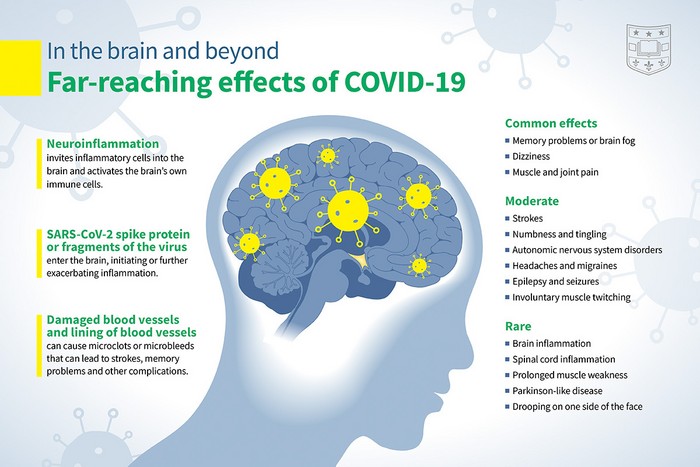
A new study reveals that individuals who have recovered from COVID-19 may face ongoing cognitive challenges, particularly in areas such as working memory and planning. These findings shed light on the potential long-term effects of the virus on brain function and daily life.
Lingering Effects on Executive Function
Researchers discovered that even 6-12 months after infection, those with a history of COVID-19 reported more difficulties with everyday cognitive tasks compared to individuals who had never been infected. The study, published in Brain, Behavior, & Immunity – Health, focused on executive function—a set of mental skills that include working memory, flexible thinking, and self-control.
Working Memory Most Affected
Among the cognitive abilities examined, working memory appeared to be the most significantly impacted. Nearly 19% of participants who had recovered from COVID-19 reported struggles with working memory, a rate almost double that of uninfected individuals. Working memory is critical for holding information in mind while completing tasks, making this finding particularly concerning for those affected.
Implications for Daily Life
The study's lead author, Sofie Buer, emphasized that these cognitive difficulties could act as barriers to regaining pre-illness functional levels. Everyday activities that rely on executive function, such as following instructions, organizing tasks, and monitoring one's own behavior, may become more challenging for those who have had COVID-19.
Study Details
The research involved over 8,000 adults in Norway, with approximately half having previously tested positive for COVID-19. Participants completed a detailed questionnaire designed to measure cognitive abilities in day-to-day situations. The assessment took place between April and September 2021, providing insights into the medium-term effects of the virus.
Looking Ahead
While the study highlights potential cognitive aftereffects of COVID-19, more research is needed to understand the long-term trajectory of these symptoms. Future studies may explore whether these cognitive difficulties improve over time and investigate potential interventions to help individuals manage these lingering effects.
As our understanding of long COVID continues to evolve, these findings underscore the importance of comprehensive support for those recovering from the virus. Recognizing cognitive symptoms as a legitimate post-infection consequence may encourage the development of targeted rehabilitation programs and inform public health strategies moving forward.